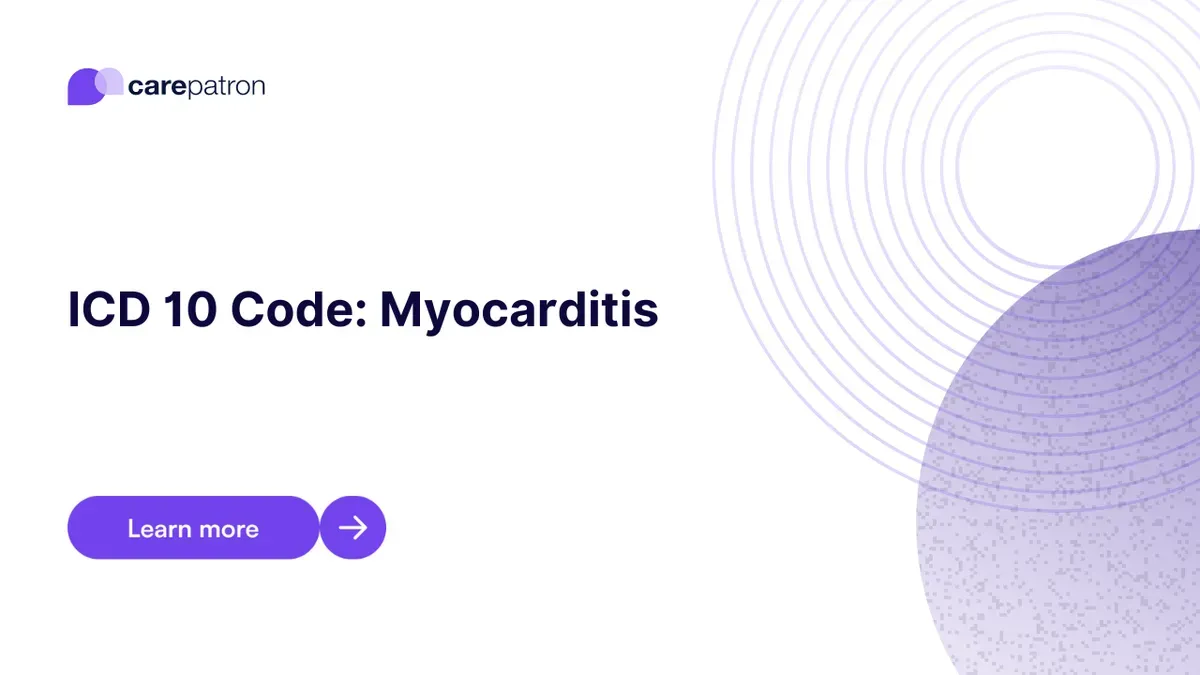
Myocarditis ICD-10-CM Codes
Learn about the ICD-10-CM codes commonly used for diagnosing and documenting myocarditis in 2023.
Use Code
Commonly asked questions
ICD-10-CM codes for myocarditis should be used in medical documentation for diagnosis, treatment planning, and billing. They provide a standardized way for healthcare professionals to capture the condition's specifics.
Treatments generally aim at managing symptoms and resolving the underlying cause. This may include anti-inflammatory medications, antiviral drugs if a viral infection is present, and heart medications like beta-blockers.
A diagnosis code for myocarditis provides a standardized way to identify and categorize the condition, aiding healthcare providers in determining the most effective treatment plan. These codes are also crucial for statistical analysis and billing purposes.
EHR and practice management software
Get started for free
*No credit card required
Free
$0/usd
Unlimited clients
Telehealth
1GB of storage
Client portal text
Automated billing and online payments
